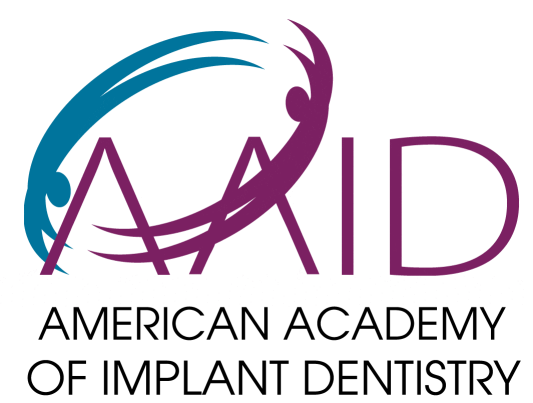Dental crowns at Lansdowne Family Dental provide comprehensive tooth restoration solutions for patients throughout Northern Virginia, including Leesburg, Ashburn, Sterling, and Lansdowne. Dental crowns are custom-fitted caps that completely cover damaged, weakened, or aesthetically compromised teeth, restoring both function and appearance while protecting the underlying tooth structure from further damage.
A radiant smile is a priceless asset, yet it’s susceptible to various dental ailments that can compromise both appearance and function. Our expert dental team specializes in precise, custom dental crown treatments using state-of-the-art technology and a patient-centered approach. Whether you need crown restoration due to decay, fracture, or cosmetic concerns, we provide personalized solutions tailored to meet your unique oral health needs.
Our dental crown services include:
- Same-day crown options using advanced digital technology
- Custom-fitted restorations for optimal comfort and aesthetics
- Multiple material choices including porcelain, ceramic, and metal alloys
- Comprehensive aftercare to ensure long-lasting results
Your quest for quality dental crowns in the Northern Virginia area ends here, where Dr. Wael Elosta and our experienced team deliver exceptional crown restoration services.
We Are The Best Dentists Serving Dental Crowns
At Lansdowne Family Dental, we pride ourselves on providing top-notch dental crowns in Leesburg, Ashburn, and Lansdowne Virginia. Our seasoned dentists, backed by years of experience, ensure that each crown procedure is conducted meticulously to meet your expectations. Here’s what sets us apart:
- Experienced Dental Staff: Our team comprises highly experienced and skilled dentists proficient in dental crown procedures.
- State-of-the-art Technology: We utilize the latest dental technology to ensure precise and comfortable procedures.
- Patient Testimonials: The satisfaction of our patients is a testament to our quality services. Our numerous positive testimonials speak volumes about our expertise and patient-centric approach.
👉Schedule Your Appointment

Understanding Dental Crowns
Dental crowns are essentially caps that encase the entire visible portion of a tooth, providing both aesthetic and functional benefits. Here’s a closer look at what they entail:
- Materials: Dental crowns come in various materials, including porcelain, ceramic, resin, and metal alloys. Each material has its unique advantages and can be chosen based on individual preferences and dental needs.
| Material | Advantages | Disadvantages |
| Porcelain | Natural appearance, stain-resistant | Less durable than metal |
| Ceramic | Aesthetic, good for front teeth | Not as strong as metal alloys |
| Resin | Less expensive | Prone to fractures, less durable |
| Metal Alloys | Very strong, long-lasting | Metallic color, more noticeable |
- Purposes: They serve to protect a weak tooth, restore a broken or worn down tooth, cover a tooth with a large filling, hold a dental bridge in place, or enhance the appearance of discolored or misshapen teeth.
When is a Dental Crown Necessary?
The necessity for a dental crown arises in various scenarios, ensuring both aesthetic appeal and functional adequacy of your teeth. Here are some situations where a dental crown might be recommended:
- Cracked or Broken Teeth: Dental crowns provide a protective shell around damaged teeth, restoring their integrity and preventing further damage.
- Severe Tooth Decay: When tooth decay reaches a point where a filling is no longer a viable option, a dental crown is often the solution to preserve the tooth.
- Post Root Canal: After a root canal procedure, a dental crown is typically placed to strengthen the tooth and improve its appearance.
- Discolored or Misshapen Teeth: Dental crowns can cover discolored or misshapen teeth, providing a natural, aesthetically pleasing appearance.
Preparing for Your Dental Crown Treatment
A well-informed patient is a well-prepared patient. Here’s what to expect and how to prepare for your dental crown procedure:
- Initial Consultation: Understand the procedure, the type of crown recommended, and the costs involved.
- Pre-Procedure Care: Follow any pre-procedure care instructions provided by your dentist to ensure a smooth process.
Our Procedure for Getting a Dental Crown
The journey toward getting a dental crown at Lansdowne Family Dental is marked by meticulous planning and precise execution. Here’s a step-by-step walkthrough of the procedure:
- Consultation: Our dentists will evaluate your dental condition and discuss the most suitable type of dental crown for you.
- Tooth Preparation: The tooth receiving the crown will be reshaped to ensure a perfect fit. An impression of the tooth will be taken.
- Temporary Crown Placement: A temporary crown is placed to protect the tooth while the permanent crown is being fabricated.
- Permanent Crown Placement: Once ready, the permanent crown is cemented onto the reshaped tooth, restoring its form and function.
Care and Maintenance of Dental Crowns
The longevity and effectiveness of your dental crown are directly correlated with the care and maintenance practices you adopt. Here’s a guide to keeping your dental crowns in optimal condition:
- Regular Cleaning: Just like your natural teeth, dental crowns need regular cleaning. Brushing twice a day and flossing daily is essential.
- Routine Check-ups: Regular dental check-ups will help in monitoring the condition of your dental crown and addressing any issues promptly.
- Avoiding Hard Foods: While dental crowns are durable, it’s wise to avoid extremely hard or sticky foods that could potentially cause damage.
Recovery and Aftercare
The journey towards a healthy smile doesn’t end with the procedure. Here’s what to expect during the recovery period and beyond:
- Immediate Aftercare: There may be some sensitivity following the procedure, which usually subsides in a few days.
- Long-term Care: Maintain good oral hygiene and attend regular dental check-ups to ensure the longevity of your dental crown.
Our Commitment to Our Patients
At Lansdowne Family Dental, patient satisfaction is at the core of our practice. Our dedicated team endeavors to provide a comfortable, positive experience from consultation to post-procedure care. Here’s what sets us apart:
- Personalized Care: Every patient is unique, and so is every dental crown procedure. We tailor our services to meet your individual needs and expectations.
- Community Engagement: Being a local dental clinic, we cherish our community ties and strive to contribute positively to the lives of our patients and the community at large.
Costs and Insurance Coverage
Investing in a dental crown is investing in your oral health and overall well-being. Here’s what you need to know about the costs and insurance coverage:
| Payment Methods | Description |
| Insurance Coverage | We Accept most dental insurance plans like Metlife, Delta, and Cigna. |
| Payment Plans | At Lansdowne Family Dental, we offer flexible payment plans to ensure that financial constraints do not hinder your access to quality dental care. |
Benefits of Getting a Dental Crown
The advantages of dental crowns are manifold, contributing to both the aesthetic and functional restoration of your teeth. Here’s a look at the key benefits:
| Benefit | Description |
| Aesthetic Enhancement | Dental crowns provide a natural appearance, covering any discoloration or deformity. |
| Functional Restoration | They restore the strength and functionality of damaged teeth, enabling normal chewing and biting. |
| Long-term Solution | With proper care, dental crowns can last many years, making them a durable solution for various dental issues. |
Comparing Dental Crowns with Other Restorative Procedures
Dental crowns are one of many restorative procedures available. Here’s a comparison to help you understand how they stack up against others:
| Procedure | Description | Ideal For | Invasiveness Level |
| Dental Crowns | Caps that cover damaged or discolored teeth. | Restoring damaged teeth, aesthetic improvements. | Low to Moderate |
| Dental Implants | Unlike dental crowns, implants replace the entire tooth, including the root, and are a more permanent but also a more invasive solution. | Missing teeth. | High |
| Dental Bridges | Bridges are used to replace missing teeth and require support from adjacent teeth, while crowns are used to restore existing damaged teeth. | Missing teeth with adjacent healthy teeth. | Moderate |
| Dental Fillings | Fillings are ideal for minor tooth decay, whereas crowns are suited for more severe cases or larger restorations. | Minor tooth decay or damage. | Low |
Conclusion
Restoring your beautiful smile with a dental crown is a decision backed by informed understanding and trust in your chosen dental care provider in Leesburg, Ashburn, Sterling, and Lansdowne VA.
At Lansdowne Family Dental, we are committed to being your trusted partner in this journey. Our comprehensive guide aims to answer all your queries regarding dental crowns, making the process transparent and comfortable. Schedule a consultation today and take a step closer to regaining your confident smile.
| Key Takeaways | Details |
| We Are The Best Dentists Serving Dental Crowns in Leesburg, Ashburn, and Lansdowne VA | Consultation, preparation, impression, and placement of the crown. |
| Definition of Dental Crowns | A cap that covers a damaged tooth to restore its shape, size, and appearance. |
| Benefits of Dental Crowns | Improved appearance, protected tooth structure, and restored functionality. |
| When is a Dental Crown Needed? | For cracked, decayed, or severely discolored teeth. |
| Care and Maintenance | Regular cleaning, dental check-ups, and avoiding hard foods. |
FAQs
- How long does the procedure take?
- The procedure typically requires two appointments: one for preparation and impression, and the other for crown placement.
- Is the procedure painful?
- Modern anesthesia ensures a virtually pain-free experience during the procedure.
- How long will my dental crown last?
- With proper care, dental crowns can last between 5 to 15 years or longer.
- Can dental crowns be whitened?
- Dental crowns do not respond to whitening treatments; it’s advisable to choose a shade you are comfortable with from the outset.
- What should I do if my crown comes off?
- If your crown comes off, contact Lansdowne Family Dental immediately for guidance.
- How should I care for my dental crown?
- Regular cleaning, avoiding hard foods, and routine dental check-ups are key to maintaining your dental crown.
Addressing Common Concerns and Myths
The realm of dental crowns is not devoid of myths and concerns. Here, we address some common misconceptions and provide clarity:
- Myth: Dental Crowns Are Painful: With modern anesthetic techniques, the procedure is relatively pain-free.
- Concern: Longevity of Dental Crowns: With proper care, dental crowns can last many years, often ranging between 5 to 15 years or longer.






